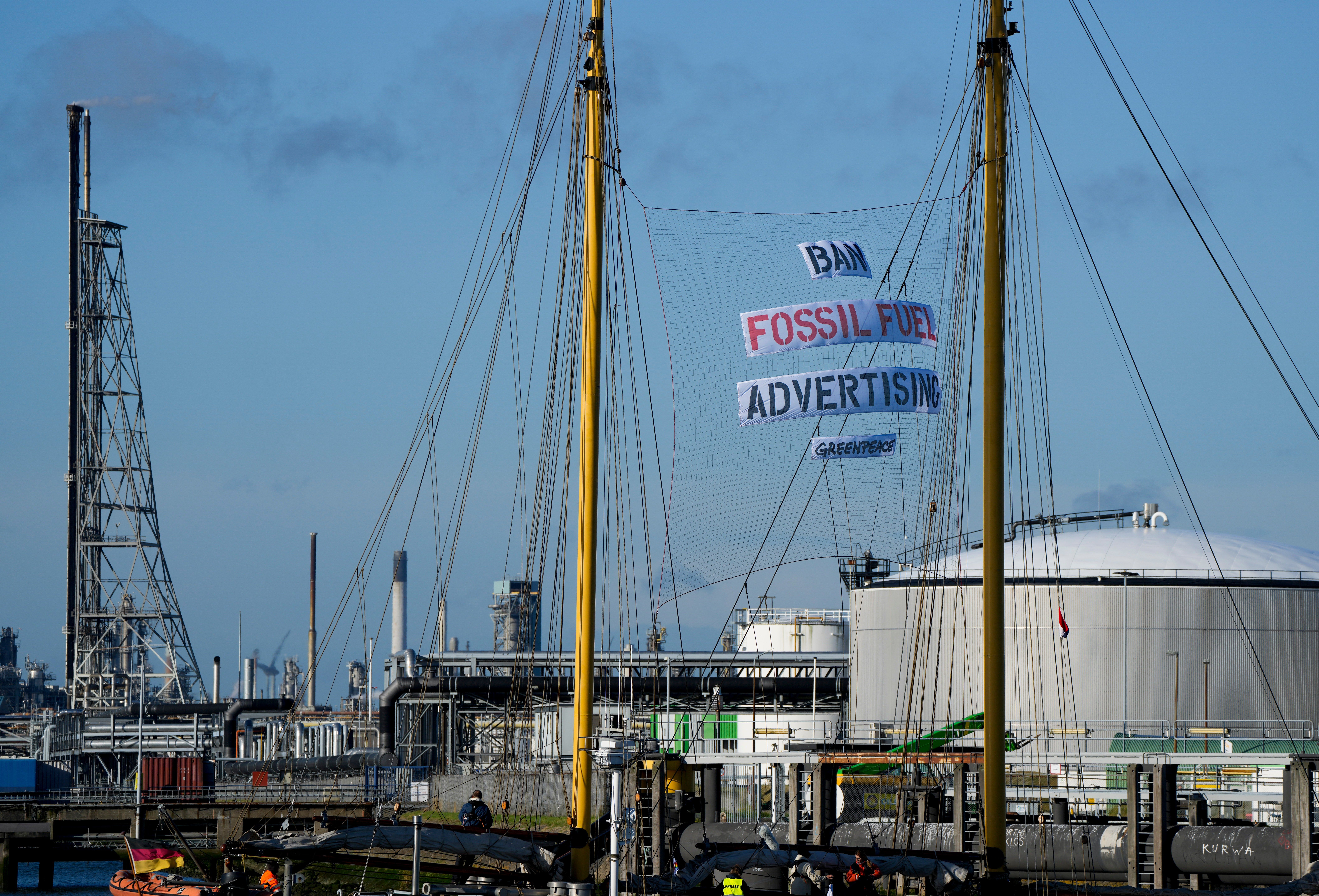Activists call for EU ban on fossil fuel advertising
A coalition of more than 20 environmental and climate activist groups has launched a campaign calling for a ban on fossil fuel advertising and sponsorship across the European Union, similar to bans on tobacco advertising

Your support helps us to tell the story
From reproductive rights to climate change to Big Tech, The Independent is on the ground when the story is developing. Whether it's investigating the financials of Elon Musk's pro-Trump PAC or producing our latest documentary, 'The A Word', which shines a light on the American women fighting for reproductive rights, we know how important it is to parse out the facts from the messaging.
At such a critical moment in US history, we need reporters on the ground. Your donation allows us to keep sending journalists to speak to both sides of the story.
The Independent is trusted by Americans across the entire political spectrum. And unlike many other quality news outlets, we choose not to lock Americans out of our reporting and analysis with paywalls. We believe quality journalism should be available to everyone, paid for by those who can afford it.
Your support makes all the difference.More than 20 environmental and climate groups launched a campaign Monday calling for a ban on fossil fuel advertising and sponsorship across the European Union, similar to bans on tobacco advertising.
More than 80 Greenpeace activists blocked the entrance to Shell s oil refinery in the Dutch port of Rotterdam to draw attention to the launch of the European Citizens' Initiative calling for the advertising ban.
The action comes less than a month before the start of the United Nations climate summit, COP26, in Glasgow. The 12-day summit aims to secure more ambitious commitments to limit global warming to well below 2 degrees Celsius, with a goal of keeping it to 1.5 degrees Celsius compared to pre-industrial levels.
Activists used floating cubes emblazoned with fossil fuel-linked advertisements to block the entrance, along with the protest ship Beluga, with the words “Ban Fossil Fuel Advertising” strung between its two masts. Activists also climbed a 15-meter (yard) oil tank and attached advertisement posters next to Shell's logo.
“I grew up reading signs about how cigarettes kill you, but never saw similar warnings in petrol stations or fuel tanks. It’s frightening that my favorite sports and museums are sponsored by airlines and car companies," Chaja Merk, an activist on board the Greenpeace ship, said in a statement released by the group. “Fossil fuel adverts belong in a museum — not sponsoring them.”
Shell said the company is investing billions of dollars in “lower-carbon energy. To help alter the mix of energy Shell sells, we need to grow these new businesses rapidly. That means letting our customers know through advertising or social media what lower-carbon solutions we offer now or are developing, so they can switch when the time is right for them.”
Calls for fossil fuel advertising bans are gaining traction. Earlier this year, Amsterdam imposed a ban in the city's metro network on ads linked to what it called “fossil products” such as gas-powered cars and cheap airline tickets. The municipality called the move a first step in a wider move to remove such ads from the Dutch capital's streets.
The campaign for a law banning ads linked to fossil fuels across the EU needs to gather 1 million verified signatures in a year. If it succeeds, the EU's executive Commission has to look at the request, but is not obliged to take action.
“This legislation would increase public awareness of products and technologies that are responsible for climate change and other environmental and health harms,” the environmental coalition said on its website.
Coinciding with the launch, Greenpeace's Dutch branch published a report accusing major energy companies of large scale “greenwashing” in their advertising campaigns — defining the term as “as a combination of both fossil fuel companies’ advertisements promoting genuinely climate friendly initiatives, as well as their advertisements that promote false climate solutions as ‘green.'”
The study analyzed more than 3,000 ads on social media by six energy companies and concluded that 63% amounted to greenwashing.
“We can confidently say that all the companies in the dataset are greenwashing, as their advertisements do not accurately reflect their business activities — either through an over-emphasis on their ‘green’ activities, or an under-emphasis on their fossil fuel activities,” the report said.
___
Read all AP stories about climate change issues at https://apnews.com/hub/climate-change.